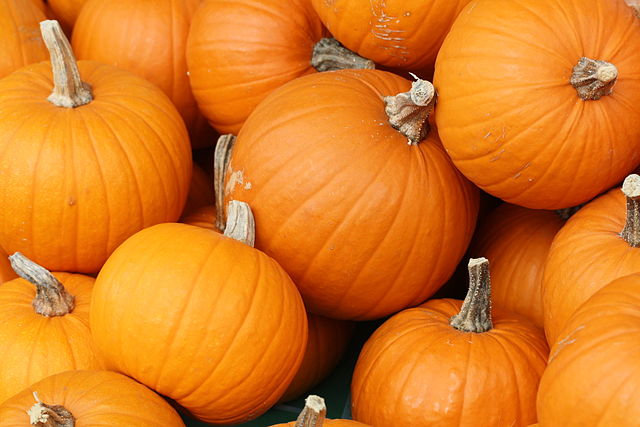A Thanksgiving Day Reflection
Thoughts about the impacts of extreme events and climate change on food security, and hopes for the Paris negotiations
Thanksgiving is a time of gratitude for the food and community we share. But as many of us feast with loved ones today, our gratitude might also prompt reflection about the sources of our food and, more generally, the fragility of the environment. This seems especially appropriate, as Native American tribes are among those most vulnerable to environmental disasters and the impacts of climate change.
Extreme weather events and climate change are creating food shortages and threatening our food security. Our current drought, for instance, jeopardizes California’s agriculture. The fruit, tree nuts, and vegetable sectors are particularly at risk, as they depend on severely drought-impacted areas. So far, the agricultural sector has successfully mitigated drought impacts and experienced record-high crop revenue and employment, according to a recent study by the Pacific Institute. But some of those mitigation efforts may come at a cost. Groundwater overdrafting to satisfy current irrigation needs is not sustainable and could lead to greater shortages in the future. The drought may also disproportionately impact Native American tribes in the west. Many tribes rely on their water sources for both traditional and agricultural purposes. Yet not all tribal communities are fully served by public water systems, and many lack secure water rights settlements that would protect their senior water rights. The high rates of poverty on reservations also limit tribes’ available resources for responding to the drought.
Climate change will increase the frequency of extreme events like droughts. It also directly threatens food security, as glaciers disappear and water and air temperatures rise. For instance, the Quinault Indian Nation relies on salmon from the Quinault River. But this summer large numbers of salmon died in the warm waters of the river before they could spawn because the Anderson Glacier in Washington supplied the river with too little cold water. And globally, rising temperatures are beginning to jeopardize agriculture. A recent World Bank report found that climate change could place 100 million more people into poverty by 2030, primarily due to crop failures from rising temperatures.
This may not be the uplifting start you wanted to your Thanksgiving. But these somber reflections make me more grateful for current responses to drought and climate change. Californians have significantly reduced their water consumption in light of Governor Brown’s mandatory water restrictions. The Clean Power Plan, though already heavily contested, has potential to reduce greenhouse gas emissions from the national electricity sector by 32-percent below 2005 levels by 2030. And next week the Paris climate negotiations begin. As Dan Farber already highlighted, all of the world’s major economies have pledged substantial emissions reductions.
Looking toward next week, I hope that the Paris negotiations will result in a binding international agreement so that the global community can more effectively address climate change. And I hope that discussions will emphasize the impacts of climate change on the most vulnerable populations. Studies like the World Bank’s support developing countries’ hopes that any agreement will expand the already promised $1 billion in climate impacts aid from developed countries.
This Thanksgiving I am grateful not only to share in delicious food but also for existing efforts to minimize climate change and to address the drought. And I look forward to seeing what comes of the Paris negotiations, hopeful that more can be done especially to aid vulnerable populations.
 On a lighter note, rainfall seems to have had minimal impact on Thanksgiving feasts this year. The greatest risk came not from the drought but too much rainfall in Illinois that ruined half of Libby’s pumpkin supply. Fortunately, there is enough canned pumpkin to last through Thanksgiving. But if you want pumpkin year-round, you may want to stock up now.
On a lighter note, rainfall seems to have had minimal impact on Thanksgiving feasts this year. The greatest risk came not from the drought but too much rainfall in Illinois that ruined half of Libby’s pumpkin supply. Fortunately, there is enough canned pumpkin to last through Thanksgiving. But if you want pumpkin year-round, you may want to stock up now.
Happy Thanksgiving!
Reader Comments
2 Replies to “A Thanksgiving Day Reflection”
Comments are closed.




Julia Forgie said;
“……I hope that the Paris negotiations will result in a binding international agreement so that the global community can more effectively address climate change…..”
Dear Ms Forgie,
Please understand there is no logical basis that would support any reasonable hope or expectation, that the Paris negotiations would do anything at all to mitigate the root cause of terrorism – climate change. These negotiations are very unlikely to result in an international agreement that is legally binding on anyone on earth. Your Professors should have taught this in Environmental Law 101. You may be entitled to a refund, flee from California.
“….France has barred from entering the country nearly 1,000 people who were deemed to pose security threats as the nation prepares to host international climate talks. French Interior Minister Bernard Cazeneuve on Saturday said border security was tightened ahead of the COP21 Paris Climate Conference “because of the risk these people could represent for public order and security in our country”………….”
http://thehill.com/policy/energy-environment/261404-paris-tightens-border-control-ahead-of-climate-talks